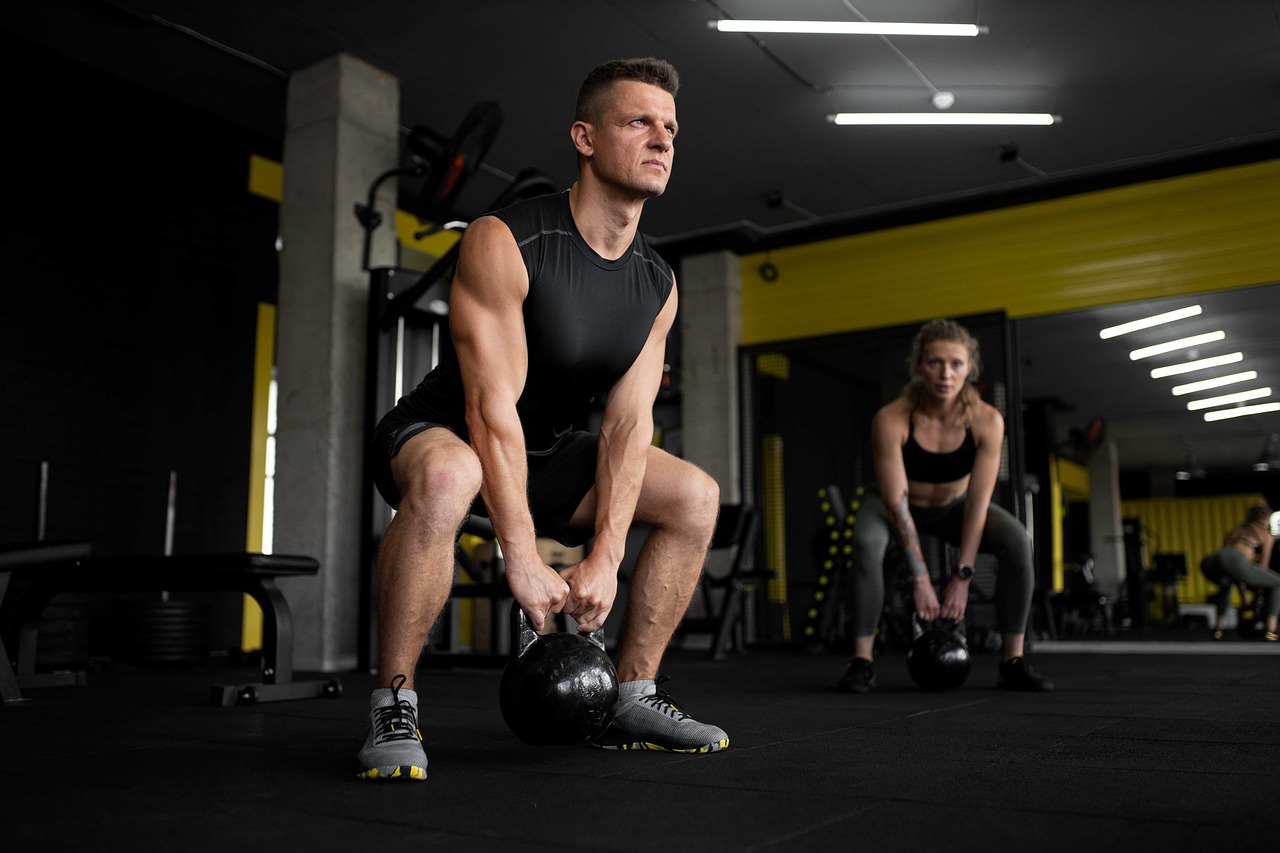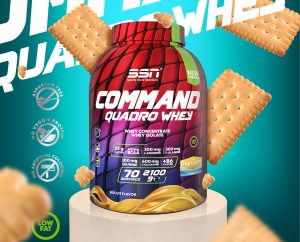Muscle Buıldıng
How to Eat for Muscle Gain: Nutrition Tips for Building Muscle

Proper nutrition is paramount for achieving muscle gain effectively. Here are essential nutrition tips to optimize muscle growth:
- Adequate Protein Intake
Consuming sufficient protein is crucial for repairing and building muscles. The daily protein intake should align with your body weight, typically ranging from 1.6 to 2.2 grams per kilogram. Protein-rich foods include chicken, turkey, fish, eggs, dairy products, and for vegetarians, tofu, lentils, beans, and chickpeas.
- Balanced Carbohydrate Consumption
Carbohydrates are vital for providing energy during workouts and replenishing muscle glycogen afterward. Opt for healthy sources such as whole grain breads, oatmeal, brown rice, potatoes, vegetables, and fruits to support muscle growth.
- Don’t Neglect Healthy Fats
Healthy fats play a role in hormonal balance and cell membrane integrity. They also aid in the absorption of fat-soluble vitamins. Incorporate sources like avocado, olive oil, fish oil, seeds, nuts, and almonds into your diet.
- Plenty of Fruits and Vegetables
Fruits and vegetables are rich in antioxidants, vitamins, minerals, and fiber essential for muscle gain and overall health. Include a variety of colorful options in your daily meals to maximize nutritional benefits.
- Stay Hydrated
Proper hydration is crucial for optimal muscle function and growth. Drink at least 8-10 glasses of water daily, adjusting intake based on activity levels and climate.
- Meal and Snack Planning
Plan balanced meals and snacks throughout the day to sustain energy levels and support muscle repair. Focus on nutrient-dense pre- and post-workout meals to enhance performance and recovery.
- Monitor Your Nutrition
Tracking your calorie intake and macronutrient distribution ensures you meet your muscle-building goals effectively. Use apps or journals to monitor and adjust your nutrition plan as needed.
Incorporating a structured and balanced nutrition plan is key to supporting muscle gain. Consider consulting with a nutrition expert or dietitian to customize a diet that aligns with your specific goals and lifestyle.
Why Nutrition Matters in Muscle Gain
Proper nutrition not only fuels muscle growth but also enhances overall performance and recovery. Here’s why each aspect of nutrition plays a vital role:
Optimizing Protein Intake
Protein is the building block of muscle tissue. Consuming adequate protein ensures that your muscles have the necessary amino acids for repair and growth. Quality sources include lean meats, fish, eggs, dairy, and plant-based options like legumes and quinoa.
Carbohydrates for Energy
Carbohydrates provide the primary fuel source during intense workouts. They replenish muscle glycogen stores post-exercise, supporting recovery and muscle growth. Choose complex carbohydrates like whole grains, fruits, and vegetables for sustained energy.
Healthy Fats for Hormonal Balance
Healthy fats, such as those found in avocados, nuts, and olive oil, are essential for hormone production and absorption of fat-soluble vitamins (A, D, E, K). They contribute to overall health and support muscle repair and growth.
Vitamins and Minerals from Fruits and Vegetables
Fruits and vegetables are rich in vitamins, minerals, and antioxidants that support immune function, reduce inflammation, and promote recovery. Aim to include a variety of colors to maximize nutrient intake.
Hydration for Optimal Performance
Water is crucial for maintaining proper hydration levels, which is essential for muscle function and overall performance. Dehydration can impair strength and endurance, so drink water regularly throughout the day.
Meal Timing and Frequency
Eating balanced meals and snacks throughout the day ensures a steady supply of nutrients to support muscle repair and growth. Pre-workout meals should provide energy, while post-workout nutrition should focus on recovery and replenishment.
Customizing Your Nutrition Plan
Every individual has unique nutritional needs based on factors like age, gender, activity level, and goals. Working with a nutrition expert or dietitian can help you tailor a plan that optimizes muscle gain while considering your personal preferences and dietary restrictions.
Conclusion
Achieving muscle gain requires more than just lifting weights—it requires a well-rounded approach that includes proper nutrition. By focusing on adequate protein intake, balanced carbohydrates, healthy fats, and ample fruits and vegetables, you can support your muscle-building efforts effectively. Remember to stay hydrated and plan your meals and snacks strategically to maximize performance and recovery.
Trainerlist offers resources to connect you with qualified trainers who can provide personalized guidance on nutrition and exercise to enhance your muscle-building journey. Start optimizing your nutrition today and take the next step towards achieving your fitness goals with Trainerlist

Muscle Buıldıng
Most Effective Exercises for Back Muscles

Building a strong and defined back requires a strategic approach that targets various muscle groups effectively. Incorporating a variety of exercises into your routine not only enhances muscle development but also improves overall strength and posture. Here are some of the most effective exercises for developing your back muscles:
- Deadlifts
Description: Deadlifts are a compound movement that targets the entire posterior chain, including the lower back, glutes, hamstrings, and upper back muscles.
Benefits: Deadlifts are unparalleled in their ability to build overall strength and muscle mass, making them a staple in any back-focused workout routine. They also promote functional strength and stability, essential for everyday activities.
How Trainerlist Can Help: Trainerlist connects you with certified trainers who specialize in strength training. They can teach you the proper deadlift form and technique, ensuring maximum muscle activation while minimizing the risk of injury. Personalized coaching from Trainerlist ensures that you progress safely and effectively, whether you’re a beginner or advanced lifter.
- Pull-Ups
Description: Pull-ups primarily target the latissimus dorsi (lats) but also engage the muscles of the upper back, including the traps and rhomboids.
Benefits: Pull-ups are a challenging bodyweight exercise that improves upper body strength, grip strength, and overall muscular endurance. They contribute to better posture and core stability.
How Trainerlist Can Help: Trainerlist provides expert guidance on mastering the pull-up technique and advancing to more challenging variations, such as weighted or assisted pull-ups. Trainers customize your training program to fit your skill level and goals, ensuring continuous progress and optimal results.
- Barbell Rows
Description: Barbell rows are effective for targeting the middle and upper back muscles, including the rhomboids, traps, and rear delts.
Benefits: This exercise not only builds muscle but also enhances posture by strengthening the muscles that support the spine. Barbell rows are versatile and can be adapted to focus on different areas of the back.
How Trainerlist Can Help: Trainerlist offers personalized coaching to perfect your barbell row technique and tailor your workout program to your specific needs. Whether you’re aiming for muscle hypertrophy, strength gains, or improved muscular endurance, Trainerlist trainers ensure that you train safely and effectively.
- Lat Pulldowns
Description: Lat pulldowns isolate the lats and are effective for building width and thickness in the back muscles.
Benefits: Lat pulldowns provide a controlled movement that targets the lats specifically, promoting muscle growth and strength development in the upper back. They are particularly beneficial for individuals looking to increase back width and improve pulling strength.
How Trainerlist Can Help: Trainerlist connects you with trainers who specialize in optimizing lat pulldown exercises. They can design customized programs that vary the grip width and handle attachments to target different angles of the back muscles. This personalized approach ensures that you achieve balanced muscle development and prevent plateaus in your training.
- Dumbbell Rows
Description: Dumbbell rows are a unilateral exercise that targets the lats, rhomboids, and traps, while also engaging the core for stability.
Benefits: By working each side of the body independently, dumbbell rows help correct muscle imbalances and improve overall symmetry in the back muscles. They are effective for both muscle building and functional strength development.
How Trainerlist Can Help: Trainerlist offers expert guidance on perfecting your dumbbell row technique to maximize muscle engagement and minimize the risk of injury. Trainers can also customize your training program to include various dumbbell row variations, such as single-arm rows or supported rows, based on your fitness level and goals.
Incorporating these exercises into your workout routine can help you achieve a strong, balanced, and defined back. Each exercise targets different muscle groups within the back, ensuring comprehensive development and reducing the risk of overuse injuries. With Trainerlist’s platform, you have access to expert guidance and support to optimize your exercise technique, design effective workout programs, and achieve your back muscle development goals efficiently.
By focusing on proper form, gradual progression, and personalized programming, Trainerlist empowers you to make significant strides in your fitness journey. Whether you’re aiming to increase strength, improve posture, or enhance athletic performance, Trainerlist connects you with certified trainers who are dedicated to helping you succeed.
Ready to take your back training to the next level? Visit Trainerlist today to find the perfect trainer for your fitness goals and start building a stronger back with confidence.
Muscle Buıldıng
Common Mistakes When Building Muscle Mass: Tips for Effective Workouts

Building muscle mass is a challenging yet rewarding endeavor that requires a combination of dedication, proper technique, and consistency. Many individuals, however, encounter obstacles on their muscle-building journey due to common mistakes that can hinder progress and prevent them from achieving their desired results. In this guide, we’ll explore these pitfalls and offer practical tips on how to avoid them, along with how Trainerlist can support you in reaching your muscle-building goals.
1. Neglecting Progressive Overload
Progressive overload is a fundamental principle in muscle growth, yet it’s often overlooked or misunderstood. This principle involves gradually increasing the demands placed on the muscles over time, whether through heavier weights, increased repetitions, or higher intensity. Without progressive overload, muscles do not receive the stimulus needed to grow stronger and larger. Trainerlist connects you with experienced trainers who specialize in designing progressive overload programs tailored to your fitness level and goals. They can help you strategically increase the challenge in your workouts to promote continuous muscle adaptation and growth.
2. Poor Exercise Selection
Effective muscle-building workouts require a balanced selection of exercises that target various muscle groups. One common mistake is focusing exclusively on isolation exercises or neglecting compound movements. Compound exercises such as squats, deadlifts, bench presses, rows, and overhead presses engage multiple muscle groups simultaneously, promoting efficient muscle development and overall strength gains. Trainerlist offers personalized workout plans curated by fitness experts, ensuring your program includes a diverse range of effective exercises tailored to maximize muscle growth.
3. Inadequate Nutrition
Nutrition is a cornerstone of muscle-building success, yet it’s often underestimated. Many individuals fail to consume enough calories and protein necessary to support muscle growth and repair. A well-rounded diet that includes sufficient protein, carbohydrates, and healthy fats is essential. Trainerlist provides access to nutrition professionals who can create personalized meal plans and offer dietary guidance specific to your muscle-building goals. They can help you optimize your nutrient intake to fuel workouts, enhance recovery, and support muscle growth effectively.
4. Overtraining
Training too frequently or with excessive volume can lead to overtraining, which negatively impacts muscle growth and increases the risk of injury. Proper recovery is crucial for muscle repair and growth. Trainerlist helps you find trainers who prioritize balanced workout programs that include adequate rest periods. These programs are designed to optimize recovery, prevent overtraining, and ensure sustainable progress towards your muscle-building goals.
5. Ignoring Proper Form
Maintaining proper exercise form is essential for maximizing muscle activation and minimizing the risk of injury. Sacrificing form to lift heavier weights compromises the effectiveness of the exercise and increases the likelihood of strains or sprains. Focus on performing each exercise with strict form and technique to ensure optimal muscle engagement and safety. Trainerlist connects you with trainers who specialize in strength training and can provide expert guidance on correct form and technique, helping you achieve better results while reducing the risk of injuries.
6. Lack of Consistency
Consistency is key to achieving muscle-building goals. Skipping workouts or frequently changing your training routine disrupts progress and prevents your body from adapting to the demands placed on it. Establishing a consistent workout schedule and sticking to it allows for continuous progression and improvement. Trainerlist offers support and accountability through certified trainers who help you stay committed to your fitness regimen. They can adjust your program as needed to ensure consistency and maximize your muscle-building efforts over time.
7. Not Listening to Your Body
Ignoring signals from your body, such as fatigue, pain, or discomfort, can lead to overuse injuries and setbacks in your muscle-building journey. It’s crucial to listen to your body’s cues and adjust your training intensity or volume accordingly. Trainerlist provides access to trainers who emphasize the importance of listening to your body’s feedback. They can help you make necessary adjustments to your workout program, ensuring it remains safe, effective, and aligned with your fitness goals.
Conclusion
Building muscle mass requires a multifaceted approach that includes proper training techniques, nutrition, and consistency. By avoiding common mistakes such as neglecting progressive overload, poor exercise selection, inadequate nutrition, overtraining, improper form, inconsistency, and disregarding your body’s signals, you can optimize your muscle-building efforts effectively and safely. Trainerlist serves as a valuable resource, offering access to experienced trainers and nutrition experts who can provide personalized guidance and support throughout your muscle-building journey. Whether you’re a beginner or an experienced athlete, investing in the right strategies and professional guidance will accelerate your progress towards achieving your desired physique.
Muscle Buıldıng
How to Train for Muscle Gain: Effective Workout Tips for Building Muscle

Achieving significant muscle gain requires a structured workout regimen that prioritizes progressive overload and targets various muscle groups. Whether you’re a beginner or seasoned lifter, following these essential workout tips can maximize muscle growth and help you achieve your fitness goals effectively.
- Embrace Resistance Training
At the core of muscle building lies resistance training. Focus on compound exercises that engage multiple muscle groups simultaneously, such as squats, deadlifts, bench presses, rows, and overhead presses. Incorporating both free weights and machines into your routine adds variety and challenges your muscles in different ways.
- Implement Progressive Overload
Progressive overload is crucial for muscle growth. Gradually increase the weight, reps, or sets in your workouts to continually challenge your muscles and stimulate growth. Keeping a detailed training log helps track progress and ensures you’re consistently pushing your limits.
- Utilize Split Training
Divide your workouts to target different muscle groups on different days. This allows adequate recovery time and ensures each muscle group is thoroughly worked. Common split routines include upper/lower body splits, push/pull splits, and specific muscle group splits like chest and triceps, back and biceps, and legs.
- Embrace Variation and Adaptation
Introduce variety into your workouts to prevent plateaus and keep your muscles guessing. Change exercises, rep ranges, set volumes, rest periods, and training techniques regularly. Platforms like Trainerlist connect you with qualified trainers who can design personalized workout plans tailored to your goals and preferences.
- Prioritize Proper Form and Technique
Maintaining proper form and technique during exercises is essential for maximizing muscle engagement and minimizing injury risk. If you’re new to resistance training or uncertain about technique, consider working with a certified personal trainer. Trainerlist can help you find a trainer specializing in strength training for expert guidance.
- Allow for Adequate Rest and Recovery
Muscles need time to recover and grow stronger after workouts. Aim for at least 48 hours of recovery time for each muscle group before targeting them again. Adequate sleep, balanced nutrition, hydration, and effective stress management are also crucial for optimal recovery and muscle growth.
- Maintain Consistency and Patience
Consistency is key to building muscle effectively. Stick to your workout routine and give it time to yield results. Muscle growth takes time and dedication, so stay committed and trust the process. Adjust your training as needed and celebrate milestones along the way.
- Monitor and Adjust Your Nutrition
Alongside your workout routine, proper nutrition is essential for supporting muscle growth. Ensure you consume adequate protein to support muscle repair and growth, ideally between 1.6 to 2.2 grams per kilogram of body weight daily. Balanced carbohydrates provide energy for workouts, while healthy fats support overall health and hormone production. Don’t forget to include plenty of fruits and vegetables for essential vitamins, minerals, and antioxidants.
Incorporating these comprehensive workout tips into your routine will significantly enhance muscle growth and help you achieve your fitness goals more efficiently. Utilize resources like Trainerlist to connect with experienced trainers who can offer personalized support and guidance throughout your muscle-building journey.
-

 Traınıng Tıps2 yıl ago
Traınıng Tıps2 yıl agoPersonal Trainer Prices and Finding Affordable Private Trainers on Trainerlist
-

 Other Sport Branches2 yıl ago
Other Sport Branches2 yıl agoWhat is a Plank Exercise?
-

 Other Sport Branches2 yıl ago
Other Sport Branches2 yıl agoWhat is a Burpee Exercise?
-

 Other Sport Branches2 yıl ago
Other Sport Branches2 yıl agoBoxing in Canada: History, Famous Boxers, and Trainerlist
-

 Other Sport Branches2 yıl ago
Other Sport Branches2 yıl agoYoga in Canada: History, Famous Practitioners, and Trainerlist
-

 Muscle Buıldıng2 yıl ago
Muscle Buıldıng2 yıl agoHow to Train for Muscle Gain: Effective Workout Tips for Building Muscle
-

 Other Sport Branches2 yıl ago
Other Sport Branches2 yıl agoIce Hockey in Canada: History, Famous Athletes, and Trainerlist
-

 Other Sport Branches2 yıl ago
Other Sport Branches2 yıl agoBasketball in Canada: History, Famous Athletes, and Trainerlist



























